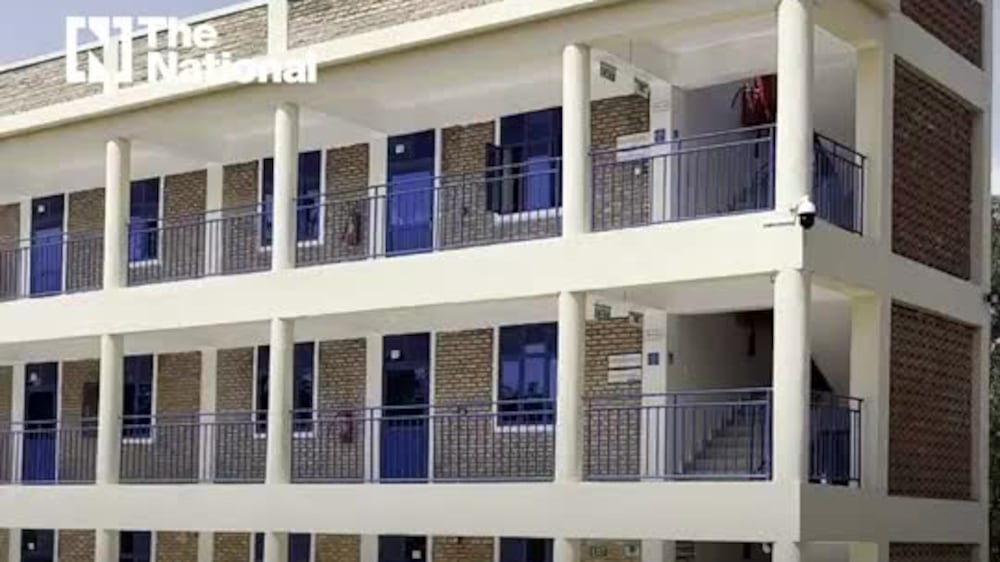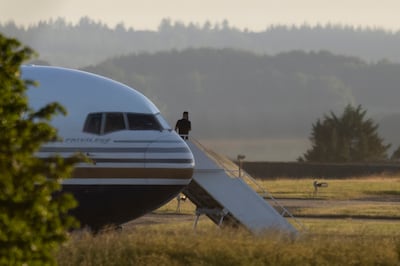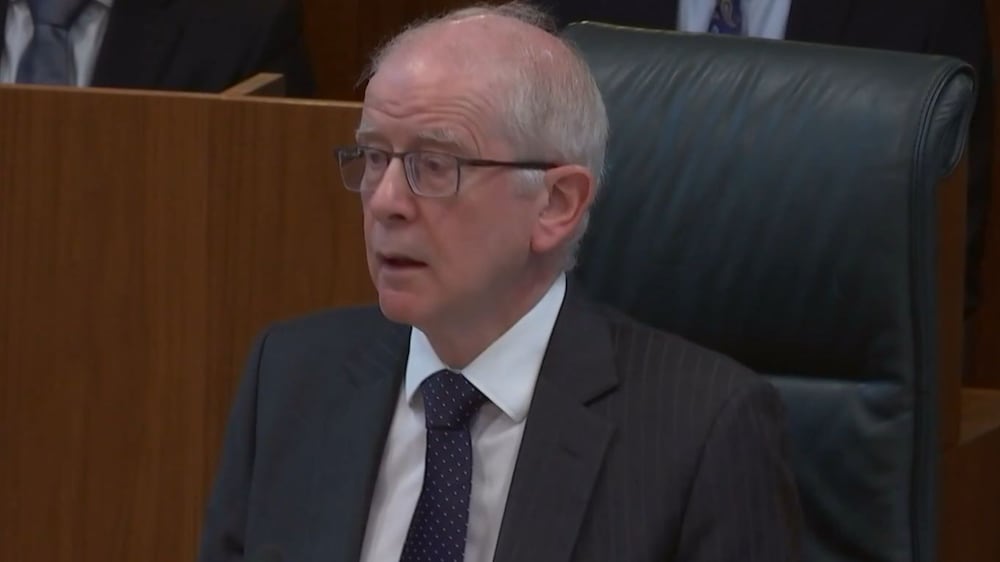This post was originally published on 3rd party site mentioned on the title ofthis site
Afghans who worked for the British during the war against the Taliban have “no hope for the future” if they are to be part of the Rwanda deportation, a former military interpreter has told The National.
The Afghan, who worked for special forces including the SAS, said friends who had paid up to $15,000 to leave as economic migrants were “deeply fearful” about being sent to the African country.
The UK government has indicated that Afghans will be among the first on the deportation flights to Rwanda, even if they served the UK during its operations in Afghanistan, mainly in Helmand province.
“Afghans have the same worries as the other refugees because they’re going to be moving to a country where they have no hope for the future,” said the Afghan source, who worked for the British from 2006 to 2014.
“They are worried, of course, because they’re going to be going to a country where they don’t have strong rights as they have currently in the UK.”
He said some had spent $15,000 to get to Britain to “establish a new life” with their families and to flee the oppressive Taliban rule in Afghanistan.
The bill is set to become law after a marathon day of protests and votes in the House of Lords on Monday.
MPs and peers have now agreed to the plan, and it is expected to be granted royal assent on Tuesday.
Will Britain ever send asylum seekers to Rwanda?
The first flights removing asylum seekers from the UK to Rwanda will leave in 10 to 12 weeks, Prime Minister Rishi Sunak said on Monday.
Mr Sunak told a news briefing at Downing Street that the government’s preparations have continued at pace to implement the plan amid parliamentary delays.
“I can confirm that we’ve put an airfield on standby, booked commercial charter planes for specific slots, and we have 500 highly trained individuals ready to escort illegal migrants all the way to Rwanda, with 300 more trained in the coming weeks,” he said.
“We are ready. Plans are in place. And these flights will go come what may.”
Before the final parliamentary showdown for the government’s Rwanda legislation later on Monday, Mr Sunak pledged Parliament “would sit there tonight and vote no matter how late it goes. No ifs. No buts”.
What is the Rwanda plan?
Inside a refugee camp in Rwanda

Under the plan, which was announced by Boris Johnson’s government in 2022, the government would send asylum seekers to Rwanda to have their claims processed there.
They would be granted refugee status with permission to stay in Rwanda, or be eligible to apply on other grounds to stay.
They could also seek asylum in another “safe” country, but they could not return to the UK.
The deportation deal is the centrepiece of a government effort to curb a surge in migrants crossing the English Channel in small boats and claiming asylum, by acting as a deterrent to prospective migrants.
The government has, however, struggled to get the first flight off the ground, after an intervention by the European Court of Human Rights, which issued last-minute injunctions to stop the move in the summer of 2022.
In December of that year, the UK’s High Court ruled the government’s Rwanda policy was lawful.
But it continued to be challenged in the UK domestic courts, with a case reaching the Supreme Court last year, when judges there ruled the policy was illegal under international law.
Judges on the Supreme Court said Rwanda could not be considered safe for migrants because asylum seekers who have their claims rejected could be returned to their countries of origin.
UK Supreme Court rules Rwanda plan unlawful
What has happened since?
The government signed a new treaty with Rwanda, which included an assurance that migrants would not be expelled from the country if their claims were rejected.
It has addressed the Supreme Court’s concerns over the current bill by forcing judges to treat Rwanda as a safe country for asylum seekers and allowing ministers to ignore emergency injunctions from the European Court of Human Rights.
Members of the House of Lords have repeatedly blocked the legislation with amendments, stretching debate on the “emergency legislation” for more than four months and delaying flights from taking off for Kigali.
Downing Street is hostile to the idea of making concessions to secure the passage of the bill, leading to a deadlock with the Lords.
Will it work?
Charities working with migrants say no.
In a statement issued to The National, Steve Smith, the chief executive of Care4Calais, said the “unworkable, albeit brutal, gimmick” will do nothing to stop small boat crossings.
People are not choosing to risk their lives in the Channel as their preferred route to claim asylum in the UK, Mr Smith said.
“It is their only route. The UK government has effectively cut every safe route to claim asylum in the UK, and the only way to stop crossings and save lives is to open new, safe routes.”
Enver Solomon, chief executive of the Refugee Council, said the Rwanda plan will only “compound the chaos within the asylum system”.
In a statement to The National he said: “Even if, as the Prime Minister asserts, there is to be a regular rhythm of multiple flights every month, this will still only correspond to at most a few thousand people a year, out of tens of thousands.
“Instead of giving these people a fair hearing on UK soil to determine if they have a protection need, the government will have to look after them indefinitely, at considerable cost.
“Despite the Prime Minister’s renewed claims about deterrence, we know from the Home Office’s own research, as well as our own, that policies such as the Rwanda Plan don’t actually work as a deterrent, and people seeking asylum have said they won’t stop coming to the UK to find safety.
“Refugee flows are driven by global events and geopolitical factors such as armed conflicts and political instability.
“And the reasons people come to the UK are often to do with family connections, community links and language.”
Will the first flight ever take off?
“The first flight will leave in 10 to 12 weeks. Now of course that is later than we wanted,” Mr Sunak said on Monday.
“But we have always been clear that processing will take time and if Labour peers had not spent weeks holding up the bill in the House of Lords to try to block these flights altogether, we would have begun this process weeks ago.”
Mr Sunak declined to give details on numbers of people likely to leave on flights to Rwanda, but said there will be a “regular rhythm” of “multiple flights a month through the summer and beyond”.
“To detain people while we prepare to remove them, we’ve increased detention spaces to 2,200,” he said.
“To quickly process claims, we’ve got 200 trained, dedicated caseworkers ready and waiting.

“To deal with any legal cases quickly and decisively, the judiciary have made available 25 courtrooms and identified 150 judges who could provide over 5,000 sitting days.
“The Strasbourg court has amended their Rule-39 procedures in line with the test set out in our Illegal Migration Act.
“And we’ve put beyond all doubt that ministers can disregard these injunctions with clear guidance that if they decide to do so, civil servants must deliver that instruction and most importantly, once the processing is complete, we will physically remove people.
“This is one of the most complex operational endeavours the Home Office has carried out. But we are ready, plans are in place and these flights will go, come what may.
“No foreign court will stop us from getting flights off.”
Updated: April 23, 2024, 6:13 AM





